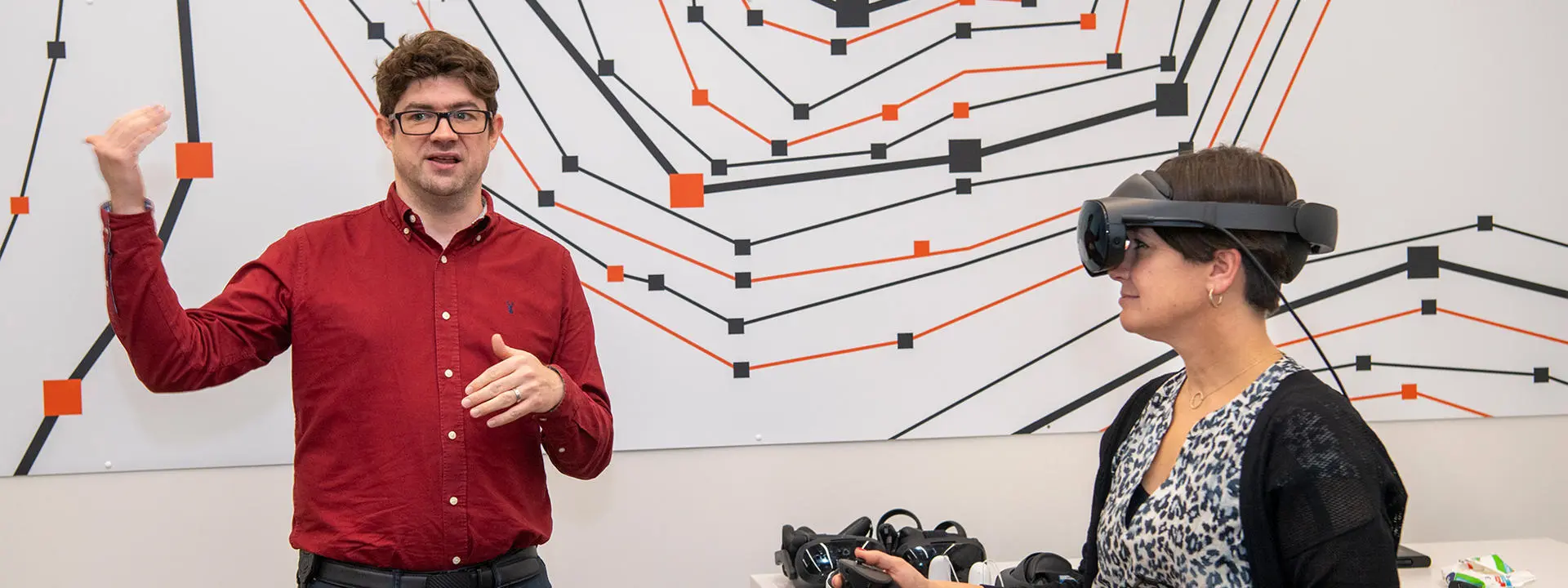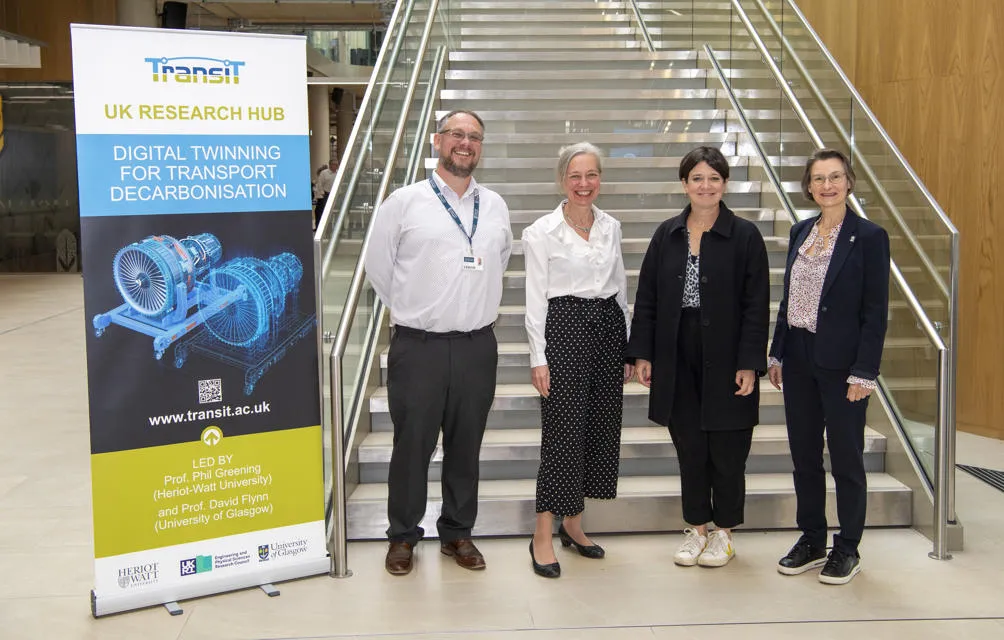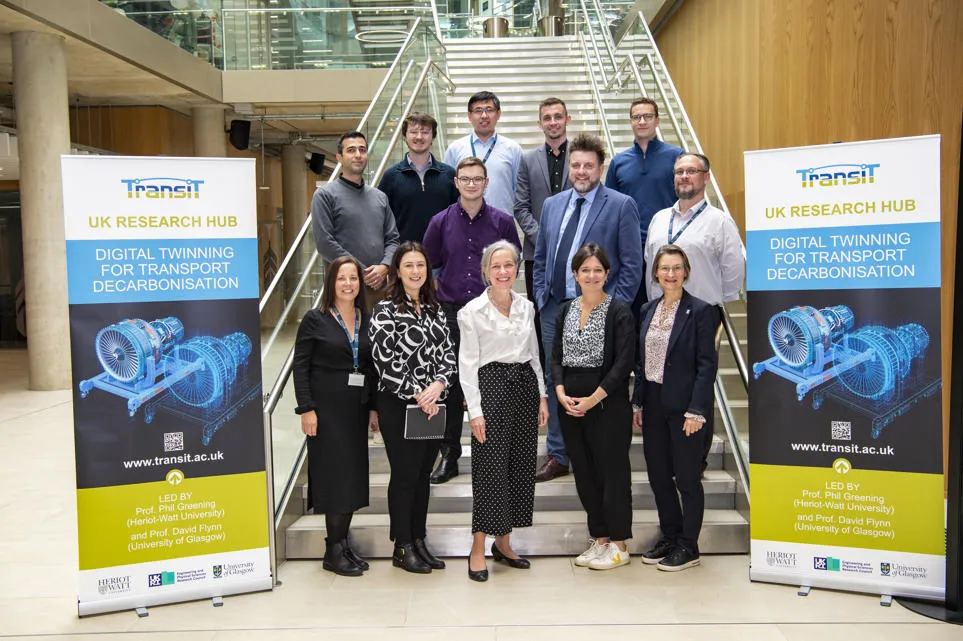TransiT research hub welcomes visitor from Department for Transport

The UK’s Department for Transport has visited TransiT, the transport decarbonisation hub led by Heriot-Watt University in Edinburgh and the University of Glasgow.
The £46m research hub is pushing forward the country’s efforts to decarbonise transport through digital twin technology, in partnership with colleagues at a further six UK universities and almost 70 partners including transport operators, regulators, vehicle makers, technology companies and energy suppliers.
In a visit to University of Glasgow to learn more about TransiT, Jo Shanmugalingam, the Second Permanent Secretary at the Department for Transport, was welcomed to the University’s Mazumdar-Shaw Advanced Research Centre (ARC).
It is fantastic to see the TransiT research hub become a reality thanks to collaboration between government, industry, and academia.
During her visit, Ms Shanmugalingam had the opportunity to hear from some of TransiT’s leading researchers on how the hub’s work has been progressing and plans for the future.
TransiT is working to develop digital twins of the UK’s transport infrastructure to help find the most rapid and effective paths to decarbonise the transport industry.
DfT Second Permanent Secretary Jo Shanmugalingam said: “It is fantastic to see the TransiT research hub become a reality thanks to collaboration between government, industry, and academia.
“This is an important step toward realising the potential of digital twins in decarbonising transport and the Department looks forward to continuing working closely with TransiT.”

Professor David Flynn, of the University of Glasgow’s James Watt School of Engineering, is one of TransiT’s two co-directors. He said: “We were pleased to welcome the Second Permanent Secretary to the University to learn more about TransiT and discuss the key role the hub is playing in helping the UK work towards decarbonisation.
“Digital twins, which use real-world data to create detailed models of how complex systems work and interact with each other, will be key to helping us determine the best ways to reduce the carbon footprint of transport.
“Here at the ARC, we have a digital twin of the building’s energy systems which helps the University on the road towards its goal of achieving net-zero emissions by 2030. As TransiT picks up pace, and we begin working with data provided by our partners, we’re beginning to see how we can scale up that approach across the whole country. It’s an exciting prospect, and we’re glad to be working closely with the Department of Transport to make it happen.”

Professor Phil Greening, a logistics expert at Heriot-Watt University, is TransiT’s joint co-director. He said: “With global temperatures rapidly rising, we have run out of time to carry out real-world transport trials and learn from them – so we have to do our experiments digitally. By modelling our future transport system with digital twins, TransiT will remove uncertainty about what works and what doesn’t – and help to identify the lowest cost, least risky and most energy-efficient way to decarbonise transport.”
TransiT’s academic partners are the University of Birmingham, the University of Cambridge, Cranfield University, Durham University, the University of Leeds and University College London.
The transport sector, including road, rail, air and maritime, is responsible for about a third of the UK’s carbon emissions.
After a six-month consultation phase, the UKRI Engineering and Physical Sciences Research Council (EPSRC), the main funding body for engineering and physical sciences research in the UK. announced in August that TransiT would be backed by £20m in new funding. This will support five years of research and the development of new digital twin technologies. A further £26m was pledged by TransiT’s partners from across the digital, energy and transport sectors.
For more information on TransiT, visit https://transit.ac.uk